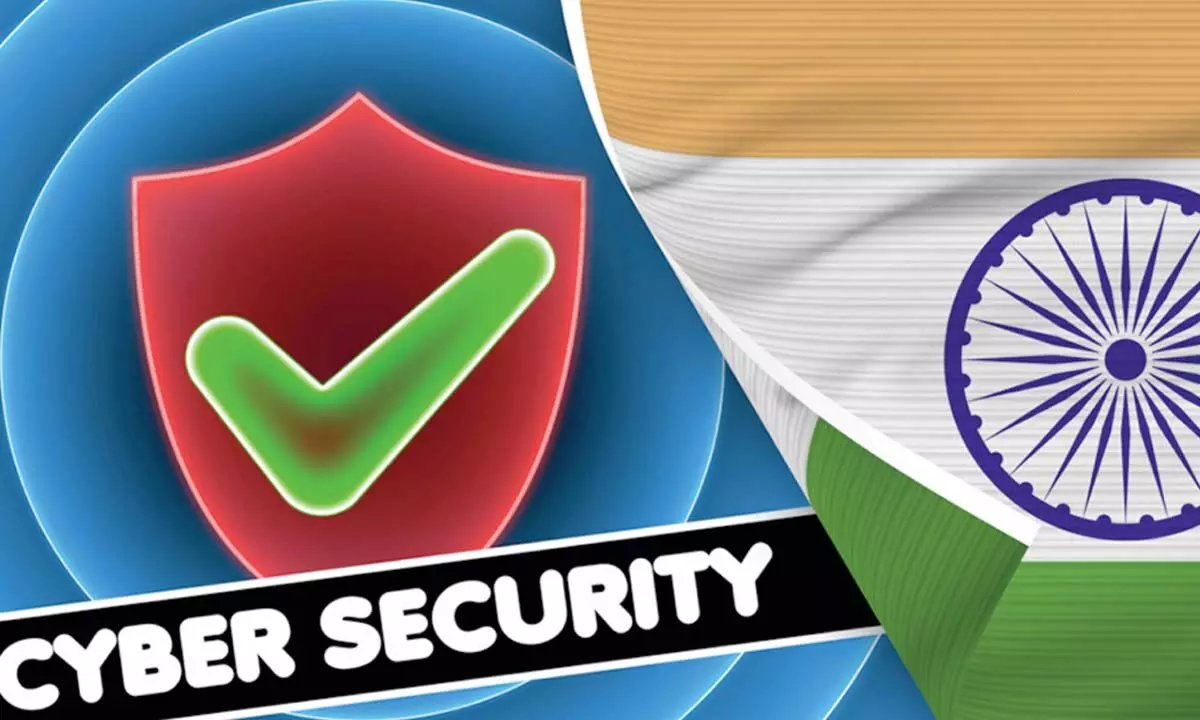Need to set up cyber command

Need to set up cyber command
Addressing the national conference on 'Cyber Safety and National Security', the Home Minister Amit Shah mentioned that the government is fully alert to all kinds of cyber threats and upgrading its system and for this purpose the following agencies function under the umbrella of the Indian Cyber Crime Coordination Centre (14C).
Addressing the national conference on 'Cyber Safety and National Security', the Home Minister Amit Shah mentioned that the government is fully alert to all kinds of cyber threats and upgrading its system and for this purpose the following agencies function under the umbrella of the Indian Cyber Crime Coordination Centre (14C).
14C consists of National Cyber Crime reporting Portal; National Cyber Threat Analytics Unit; National Cyber Crime Forensic Laboratory; Joint Cyber Crime Coordination Team; National Cyber Crime Training Centre; Cyber Crime Research and Innovation Centre and National Cyber Crime Eco-system and Management Unit.
As Pakistan failed through conventional wars and terrorism, 'to achieve its goals vis-à-vis India, it was realised in Pakistan that digital technologies - Internet and mobile phones now provide easy tools of subversion and radicalization and with deniability... Electronic communications do not respect national frontiers. Pakistan sees new opportunities for a sophisticated onslaught against India through digital subversion and cyber warfare. What is needed is set of computers and a few technically savvy operators functioning from small spaces. Such groups can hack into computer systems of a country, disturb electronic systems, steal classified data, disrupt stock markets, immobilise transport systems, degrade missile offensive and defensive configurations, interfere with power production and transmission, space-based assets, etc. They can paralyze cities and infrastructure, wreak economic havoc and jeopardize offensive and defensive structures'.
It is also known that Chinese hackers have penetrated and hacked computers of some sensitive ministries and, probably, Indian security agencies. The Chinese Army, graduates dozens of cyber warriors every year. China reportedly has tested its capabilities to launch cyber attacks on infrastructure and war-fighting assets. India's approach to cyber defence requires doctrinal and organisational approach. Multiple agencies, with tasks split between them require real coordination. India has been the victim of hundreds of cyber attacks, including the MEA and the Navy.
In an article in The New York Times, Richard Clarke (former NSA to Bill Clinton and George W. Bush II and Head of Counter Terrorism) quoted Robert S. Mueller III, the Director of FBI, that cyber attacks would soon replace terrorism as the 'Agency's No. 1' concern as foreign hackers, particularly from China, penetrate American firms' computers and steal huge amounts of valuable data and intellectual property. Clarke also cited General Keith V. Alexander, Head of the military's Cyber Command, who stated that the 'continuing, rampant cyber theft is the greatest transfer of wealth in history'.
Recognising the threat of cyber attacks from hostile entities, including domestic and overseas saboteurs, a new initiative appears to have been taken to train 500,000 cyber warriors in the next five years to meet a critical gap in the country's defences. A government-private sector plan will look at beefing up India's cyber security capabilities reckoning a shortfall of 470,000 such security experts.
The setting up of 14C by the government appears to be a new initiative and response to cyber attacks and security threats to sensitive ministries – MEA, Defence, nuclear and satellite launching stations, research data from scientific and research institutions. To prevent hackers gaining control of communication systems and manipulate them we must secure all their systems, and particularly finance and energy.
The government is reportedly planning to establish an autonomous 'Institute of Cyber Security Professionals of India' and make cyber security audits mandatory in companies. As part of this initiative, information sharing and analysis centers would be created in industry verticals, which would coordinate with cyber emergency response teams. Training would be imparted to personnel in the law enforcement agencies in cybercrime investigation and cyber forensics.
Cyberspace extends limitless opportunities for digital subversion, exacerbating the problem greatly. Using cyber technology and appealing in the name of radical Islam, even a non-state actor enemy can become a source of explosive damage, and can do so while cloaking in deniability... It's time India begins to think doctrinally about and prepare for a new age of cyber terror and cyber warfare. In this, we must learn from the Americans and the Chinese.
The US, for instance, has created a whole new arm called Cyber Command, whose head is the Director of the National Security Agency. The Cyber Command ensures that no electronic transmission enters or leaves the US without it knowing. When one is faced with lightning speed offensive measures, counter-measures, too, have to be instantaneous.'
It is the Directorate of Revenue Intelligence including the Customs authorities, whose basic responsibility is to guard the economic frontiers of the country, which should inspect and intercept anything that passes through cyberspace into or from India, crossing virtual borders. It is therefore necessary that these agencies should equip themselves to meet this challenge. This is one area which is vulnerable and has not received the required attention of the DRI, the Customs authorities and other security agencies.
(The author is former DG, DRI and Member, CBIC)








